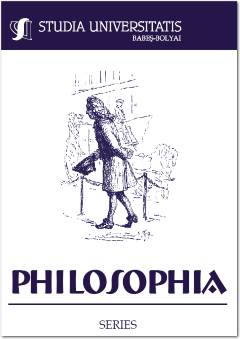ENVIRONMENTAL-EMBODIED EDUCATION: VIRTUES FOR SOCIAL HYGIENE AND SELF-ENJOYMENT
ENVIRONMENTAL-EMBODIED EDUCATION: VIRTUES FOR SOCIAL HYGIENE AND SELF-ENJOYMENT
Author(s): Radu SimionSubject(s): Philosophy, Ethics / Practical Philosophy
Published by: Studia Universitatis Babes-Bolyai
Keywords: education; ethics; embodied; virtue; sustainability; outdoor;
Summary/Abstract: Environmental-embodied Education: Virtues for Social Hygiene and Self-enjoyment. The contemporary debates concerning environmental education and ethics are continuously growing, developing new ways of perceiving the self in relation to the biotic community and to nature as a whole. Sustainability virtue ethics is a field that can provide a theoretical and practical structure for what it means to live a good and pleasant life, building attitudes characterized by caring, awareness, awe and responsibility. The aim of this paper is to draw a map of how to generate a context that facilitates a real transformation in the way individuals relate to nature, an education for empathy, with a sense of belonging and a maximum of adaptability. Based on my experience as an educator in a green school (Green School Romania) and as a researcher in the field of moral eco-pedagogy, I intent to talk about how environmental experiential education is an Archimedean point for what it means to develop a sensuous enjoyment and self-enjoyment in the biotic community, moving away from defensiveness and unjustified fears. In the context of risk management and long-term strategies for protecting and preserving the delicate equilibrium of life on Earth, environmental virtue ethics represents a necessary and helpful tool, based on interaction and on a focus on the process, discovering the miracle of being aligned with the rhythms of nature. This paper is designed to stand up against the instrumentalism and the dominant egoistic attitude of being above nature, trying to replace them with the attitude of fitting into nature with curiosity, simplicity and serenity. Using the model of moral eco-pedagogy (experiential learning about, for and from the environment) and non-violent communication, I will show that the individual begins to become that self that one truly is, a process of self- realization and engagement with an impact on how he relates to the moral patients and the natural world.
Journal: Studia Universitatis Babes-Bolyai - Philosophia
- Issue Year: 63/2018
- Issue No: Sp.Iss.
- Page Range: 67-84
- Page Count: 18
- Language: English

